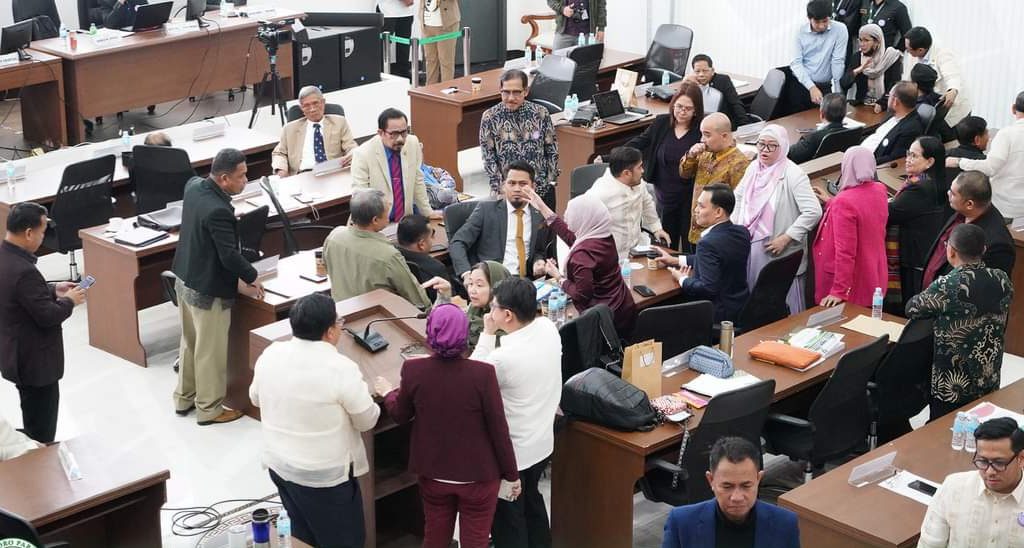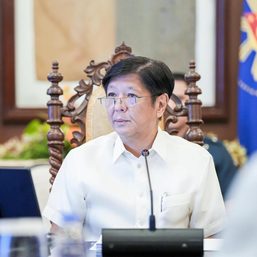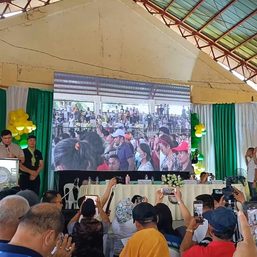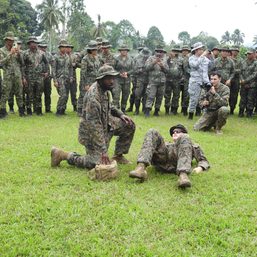SUMMARY
This is AI generated summarization, which may have errors. For context, always refer to the full article.

GENERAL SANTOS, Philippines – The Bangsamoro parliament made history as it passed the Muslim-majority region’s electoral code on its third and final reading, just two minutes before midnight on Wednesday, March 8.
The final draft of Bangsamoro Transition Authority (BTA) Bill No. 29 was a result of intense deliberations and arguments in a marathon plenary session that began on Tuesday.
The Bangsamoro Electoral Code of 2023, one of the priorities of Bangsamoro Autonomous Region in Muslim Mindanao (BARMM) officials, would guide the first regional elections scheduled simultaneously with the national and local elections in 2025.
The Code serves as the legal framework for the structural, functional, and procedural principles of elections, plebiscites, referenda, and recall proceedings in the Bangsamoro region.
It aims to ensure that regional elections would be honest, credible, just, and free, said Bangsamoro parliament floor leader and the committee on rules chairperson Sha Elijah Dumama-Alba.
The draft was approved at the committee level on Monday, March 6, and presented the following day for plenary discussions by the BTA Committee on Rules.
A series of consultations and deliberations on the bill significantly reduced the original draft from 14 articles and 62 pages to just 11 articles and 51 pages.
The Bangsamoro parliament, composed of 80 members, with 50% representing political parties, 40% representing districts, and 10% sectoral representation, approved the electoral law unanimously.
With 64 affirmative votes, no negative votes, and no abstentions, the measure was approved on the second day for the final reading despite the allocated three-day rule.
Bangsamoro parliament Deputy Speaker Omar Yasser Sema, who presided over the session, banged the gavel at 11:58 pm on Wednesday.
As he voted to approve the code, Bangsamoro parliament Speaker Pangalian Balindong said, “It is an opportune time for us to set a new stage for our future leaders to lead our people by exemplifying honesty, equality, and empowering the true voice of democracy.”
BARMM interim Chief Minister Ahod Balawag Ebrahim, who witnessed the passage of the code, was in high spirits. He had committed the timely enactment of the Code to President Ferdinand Marcos Jr., who specifically mentioned this during his last visit to the autonomous region.
He said the electoral law would encourage the formation of “genuinely principled political parties” in the Bangsamoro region.
Ebrahim said it showed the commitment of the members of parliament to establish a government deserving of the name “Bangsamoro” when they took their oath.
He said it was the fulfillment of their commitment to enact an electoral code that would help pave the way for more democratic elections in the region, in which “genuinely moral” political parties would be able to participate.
Ebrahim said, “The Bangsamoro electoral code’s adoption today is a major step towards realizing such a promise.”
With the electoral code already approved, other priority proposed laws awaiting enactment during the transition period include local governance, revenue, and indigenous peoples’ rights.
The parliament has already approved the region’s administrative, civil service, and education codes.
Alba’s committee had conducted a series of public consultations in Manila, Basilan, Sulu, Tawi-Tawi, Maguindanao, Lanao del Sur, Cotabato City, and the BARMM Special Geographic Area, consulting various experts and stakeholders from the Commission on Elections, election watchdogs, local government units, civil society organizations, academic institutions, religious groups, civil society organizations, and other relevant stakeholders. – Rappler.com
Ferdinandh Cabrera is an Aries Rufo Journalism fellow and Rommel Rebollido is a journalist based in General Santos City.
Add a comment
How does this make you feel?




![[WATCH] #TheLeaderIWant: Filipino voters sound off on community issues a year before 2025 elections](https://www.rappler.com/tachyon/2024/05/filipino-voters-sound-off-on-community-issues-1.jpg?resize=257%2C257&crop=276px%2C0px%2C720px%2C720px)










There are no comments yet. Add your comment to start the conversation.